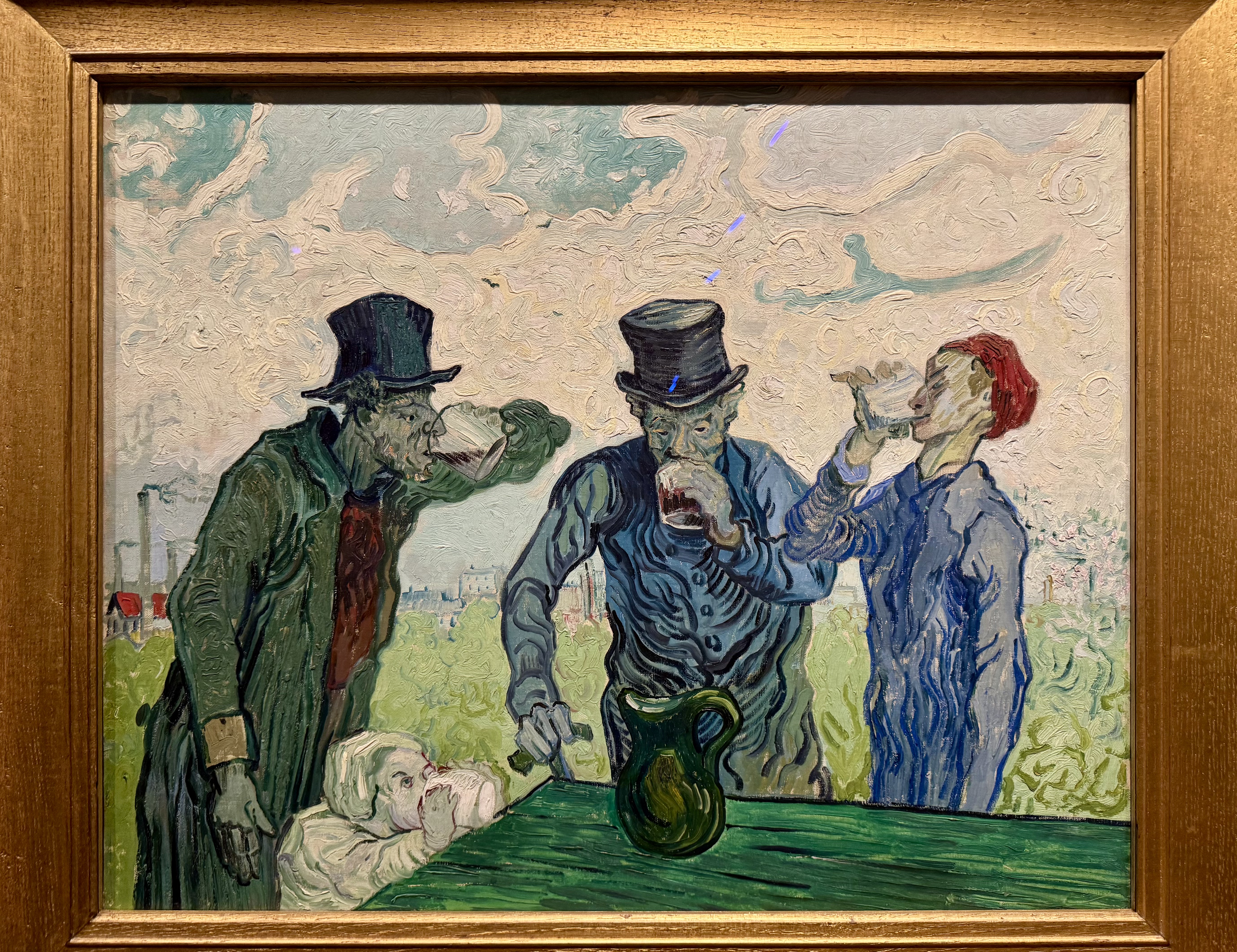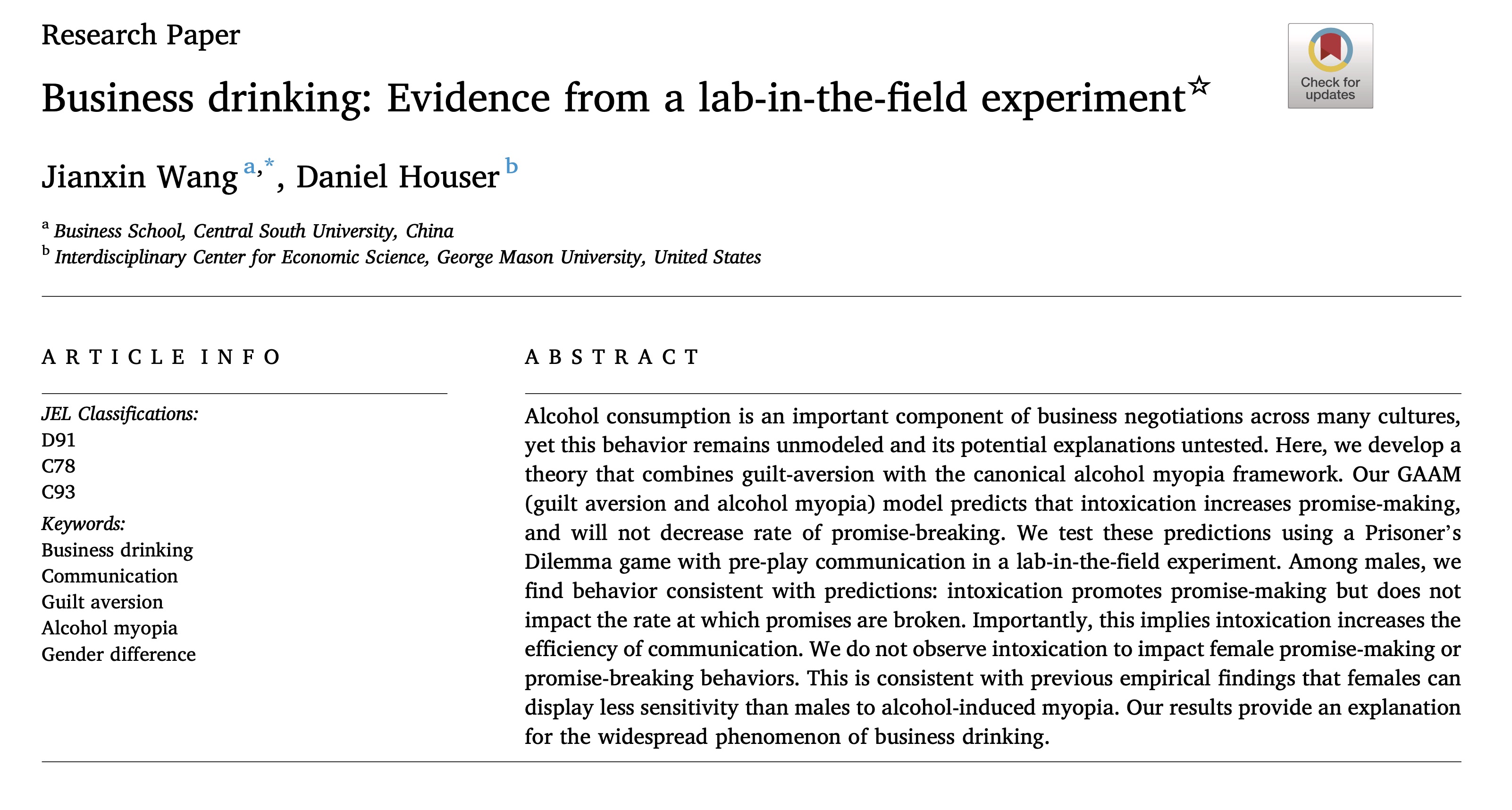
In China, business deals are often made over dinners, where the essential informal/implicit consensus are reached. Drinking alcohol (especially, BaiJiu) in formal business dinner is not only for enjoyment, but more of a cultural etiquette—drinking with the the party is a way to show respect and commitment.
Here’s a really interesting behavioral economics paper about the effect of alcohol intoxication affecting people strike a deal in business:

The idea is golden — and the paper is only 15 pages! Well, John Nash’s PhD thesis was also just 26 pages…
Business Drinking in East Asia
In China, social networking often takes the form of having dinner together and drinking Baijiu, a drink with high alcohol content. The current generation of Chinese business people report that it has become common practice for business to be negotiated and finalized over drinks, and that it is not possible to avoid drinking in business-related settings.
Many Japanese use drinking to forge business relationships, as captured by their expression “nomunication,” which stems from the Japanese verb nomu (“to drink”). Japanese salespeople frequently woo their clients over drinks, knowing that although explicit deal making is uncommon during this type of socializing, an agreement is rarely reached absent this prelude.
The GAAM (guilt aversion alcohol myopia) framework
The paper proposed a theoretical model to analyze how business promises are made (or not made) and how alcohol affects this.
Consider two stages: when promises are (i) made, and (ii) (in the future) fulfilled. It’s a bit restrictive though helpful to think of stage (i) making promisings has positive utilities (eg. satisfaction), while (ii) fulfilling promises is costlly.
Guilt Aversion: promises are enforced by a desire to avoid guilt arising from promise-breaking. Forward-looking guilt-averse players can be deterred from making promises.
Alcohol Myopia: alcohol narrows one’s mental focus. When someone is intoxicated, they don’t process all the cues or signals around them. Instead, they become more focused on whatever cues are the most immediate and obvious (called salient cues). Meanwhile, they pay less attention to less obvious but important signals (eg. being cautious, thinking about long-term consequences), which are called inhibiting cues.
Particularly, the alcohol myopia model lines up closely with what neuroscience says about alcohol’s effects on the brain: alcohol suppresses activity in the prefrontal cortex, which is the executive part of the brain responsible for logical thinking, planning ahead and impulse control.
The lab-in-the-field experiment
I’m not an expert, so let me just quote the part in the paper that I found to be informative:
The experiment was conducted in bars or barbecue restaurants near the university campus (people usually will consume alcohol at barbecue restaurants).
Our participants made decisions in a one-shot Prisoner’s Dilemma (PD) game with pre-play communication. Before making decisions, paired participants communicated with each other for at most 90 s using free-form text messages.
The participant’s blood alcohol level was measured by breathalyzer and recorded. The researchers hired human analyzer (‘coder’) to classify the extent of promises made during the pre-game communication into three categories: {“strong promise” “weak promise” “empty talk”}.
Results
Alcohol effect on promise making: Intoxicated males are more prone to make promises than sober males while alcohol myopia did not play a significant role in female promise making. (Intoxicated males are 15% more likely to make a promise than sober ones, and this effect is statistically significant at the 5% level.)
Alcohol effect on promise-keeping: Comparing rates of promise-keeping among those who made a promise.
干杯!